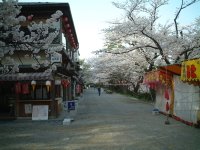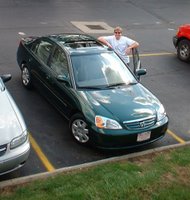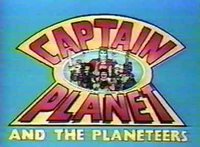In my albeit limited experience, I have yet to find a country with cleaner big cities than Japan. You walk down the street, and you might have to go half a block before you find as much as a discarded cigarette end. And this is in Tokyo! Population 35 million people, one of the world's financial, technological, and fashion capitols.
The reasons for this are approximately (in my highly scientific study which involved asking myself--margin of error plus or minus 1.27) twofold:
- Japanese people follow the rules (this is not precisely true, but I'll come back to that in the expanded explanation of this item), and
- The city governments employ people whose soul function is beautification of the city (other cities do this too, of course, but I'm not talking about garbage men garbage persons sanitary technicians and Parks and Rec staff).
 Right, so to go into more detail on point one. I claimed that Japanese people follow the rules, and that is almost true, if a bit of a simplification. I have witnessed the following in Japan: at 03:30 in the morning, in a sleepy part of town (Kanazawa, which is pictured at left because I can), not one but several pedestrians stood on a street corner, waiting for the signal to change to "Walk", despite the fact that there were a) absolutely no cars on the road, and b) even if there were, you could see roughly a kilometre up the road in each direction any way; at a specific subway station (Minato Mirai Station, if you must know), there is a sign asking people to line up in twos, and people actually did it, in a line so straight that my high school gym teacher (Coach T, for those Stauntonians in the know) would have wept tears of joy.
Right, so to go into more detail on point one. I claimed that Japanese people follow the rules, and that is almost true, if a bit of a simplification. I have witnessed the following in Japan: at 03:30 in the morning, in a sleepy part of town (Kanazawa, which is pictured at left because I can), not one but several pedestrians stood on a street corner, waiting for the signal to change to "Walk", despite the fact that there were a) absolutely no cars on the road, and b) even if there were, you could see roughly a kilometre up the road in each direction any way; at a specific subway station (Minato Mirai Station, if you must know), there is a sign asking people to line up in twos, and people actually did it, in a line so straight that my high school gym teacher (Coach T, for those Stauntonians in the know) would have wept tears of joy.But yeah, despite these arbitrary examples and the fact that Japan has no crime, etc., it is not entirely correct to say that the Japanese obey the rules. Nay, me bonnie lass! They obey not the rules but the conventions, and there is a slight different. Japanese society is a rigid and formal beast, where "the nail that sticks up gets pounded down" (and I really need to find out how to say that in Japanese! Matthew?), and the law of the land means naught when it runs up against societal convention. An excellent example is this one: Japan, like any halfway civilised country, has traffic laws. One specific traffic law is that when you are approaching an intersection and there is a huge white line painted on the street, preceded by huge white letters proclaiming tomare (that's 止まれ, meaning "stop!!!"), you must stop your vehicle behind the bloody line. You know, just like in America? But here's the kicker: sometimes the intersection has only a stop sign (as opposed to a stop light), or you are in a position to make a legal left-hand turn on red (you did know that they drive on the wrong side of the road here, right? what is it with these sodding island countries and the left-hand driving!?). If you stop behind the line, you can't see very well, so you might not be able to make your turn and you might be (gasp!) five seconds later to wherever the hell you are going in such a damned hurry, jackass! (I'm talkin' to you, punk!) If you stop at the very edge of the intersection, you can see, but now you have to go to the carwash to clean the entrails of the poor pedestrians who were in the crosswalk out of your gleaming grille. So what do you do?
 In America, the compromise I have seen accepted by most drivers is simply to stop behind the line (in case there are pedestrians in your crosshairs or a copper is lurking nearby, ready to add to the city's coffers and meet his quota serve and protect by writing your arse a ticket), then creeping forward to a better vantage point and finally making the turn right in front of me, jerk! (See, I may miss my car, but I don't really miss driving, at least not in the city.) But the Japanese, ever efficient, have decided that this momentary pause is foolish, so they just roll right up to the edge of the intersection before stopping. Of course, if a pedestrian is crossing, the driver will deign to stop his one-tonne steel death-chariot rather than have to go to the carwash (not because the driver cares about your life, you see, but because going to the carwash would make him later than just waiting for your slow arse to shuffle across the road, grandpa!). The only problem is, of course, if a pedestrian is planning to cross--nay is taking his penultimate step on the sidewalk, when out of nowhere roars a Toyota, shooting for the last centimetre before running the risk of getting hit by cars on the intersecting road (again, because it would make the maniacal driver of said Toyata late to the pachinko-ya). Pedestrian, prepare to dive for your life, suckah! And if you lose your balance and fall forward, making contact with the trunk of the Toyota, hoping for nothing more than the preservation of your pathetic life, you will be sworn at in language that would make a yakuza blush.
In America, the compromise I have seen accepted by most drivers is simply to stop behind the line (in case there are pedestrians in your crosshairs or a copper is lurking nearby, ready to add to the city's coffers and meet his quota serve and protect by writing your arse a ticket), then creeping forward to a better vantage point and finally making the turn right in front of me, jerk! (See, I may miss my car, but I don't really miss driving, at least not in the city.) But the Japanese, ever efficient, have decided that this momentary pause is foolish, so they just roll right up to the edge of the intersection before stopping. Of course, if a pedestrian is crossing, the driver will deign to stop his one-tonne steel death-chariot rather than have to go to the carwash (not because the driver cares about your life, you see, but because going to the carwash would make him later than just waiting for your slow arse to shuffle across the road, grandpa!). The only problem is, of course, if a pedestrian is planning to cross--nay is taking his penultimate step on the sidewalk, when out of nowhere roars a Toyota, shooting for the last centimetre before running the risk of getting hit by cars on the intersecting road (again, because it would make the maniacal driver of said Toyata late to the pachinko-ya). Pedestrian, prepare to dive for your life, suckah! And if you lose your balance and fall forward, making contact with the trunk of the Toyota, hoping for nothing more than the preservation of your pathetic life, you will be sworn at in language that would make a yakuza blush.Note, the above did not happen to me, ever. Oh no, I'm just speaking hyperbolically--er, hypothetically. Right. Bastard driver.
Oh yeah, the whole point of that rant, ostensibly anyway, was to point out one example where all Japanese drivers follow a convention that is actually in violation of the "rules". In fact, I'll bet that if a Japanese driver were to stop behind the sodding line, he would promptly be rear-ended, at which point the aggressor would get out of his car, angrily, and ask the law-abiding citizen just what the hell he was doing stopping so recklessly.
But luckily for us all, convention and law agree that littering is not a nice thing to do. Industrial pollution and illegal dumping of toxic substances? A-OK!
Er, right. Sorry. What I meant to say is that most people do not litter, because if they do, they will be pounded down. (In fact, I would be most happy to administer the pounding, but more on that later.)
Back to my second point (remember that?), the fact that there are people walking around the city, paid handsomely (well, probably not; in fact, I doubt they make a living wage) by the various and sundry city and other local governments to clean up trash. And not only do they clean up trash, they clean up bloody trash cans! No, for real. I have seen old ladies scrubbing public trash cans vigorously with a rag, juicing those suckers with vigorous-looking red cleaning fluid from a spray bottle.
Of course, the reason that city governments can afford to pay little old ladies to clean public trashcans is that the city of Tokyo has approximately three trash cans (one in Ginza, one in Shinjuku, one in Shibuya; none in Roppongi, naturally). I am damned serious, you can find yourself walking for hours in Tokyo, looking for a place to throw away your chewing gum wrapper (happened to me today, in fact). Luckily, convenience stores usually have cans out front for empty bottles, cans, PET bottles, and burnable and non-burnable trash. Of course, that does not help you when you are in a train station or walking down a street in bloody Nishi-Funabashi, where there are no convenience stores in a five kilometre radius!
OK, I am a staunch beliver in proper garbage disposal. In fact, when Lyani wants to irritate me, she claims to have spit her chewing gum down a storm sewer drain. I separate my trash into more categories than anyone: burnable, non-burnable, recyclable paper, recyclable metal, recyclable glass, recyclable plastic, batteries (nope, I don't just throw them in the non-burnable like the rest of you eco-criminals out there), biohazardous waste... oops, I guess I did not really mean to reveal that last one. I am not doing experiments on creating a master race fusion between cats and frogs! Nothing to see here, move along. And so forth.

Oh, right, so I was simply making the point that I am pretty much Captain Planet. And yet wild fantasies of wanton littering have been known to play through my fevered brain when I have been holding my spent Snickers wrapper in my hand for better than an hour, looking for anywhere to dispose of the damned thing. Lemme tell you, I have been pretty tempted to stuff stuff like that right into the omnipresent recyclables bins (which, of course, are only omnipresent until you actually need to recycle a bloody Fanta Grape can). Haven't done it, but wanted to.
Contrast this with most other cities in the world. I will pick on Sofia, Bulgaria here, just because it is where I made the observation first, but I am sure it applies to Washington, London, Paris, Berlin, and Beijing as well (oh yeah, and Moscow; sorry 'bout that, Vladimir Vladimirovich). Sofia has public trash bins literally every thirty metres. Two to every city block, I am not kidding. And yet, what do you see next to these lavishly placed bins? You guessed it: trash! Mounds and mounds of the shite.
So thanks, Japan. Viva la conventionidad socialistichen! Ета правда!

9 comments:
Entertaining as always - and pretty heavy with the british lingo to boot!
Whut ya gittin' at, guvnor? Can't understand a bloomin' word! ;)
That is classic, Kohler! You need to add that to your quotes library, along with my one on masturbation. ;)
I think that the saying is --
出る釘は打たれる *deru kugi ha utareru* if that didn't come up in kanji.
I'm not sure that I like the saying so much. It may have had meaning in the Edo period (unless you were Miyamoto Musashi, in which case... deru kugi are still being talked about with mad respect hundreds of years later) but now.... Now it seems like deru kugi get on TV every night. Have you seen "Hard Gay" on TV?
http://www.youtube.com/watch?v=-3W9PGdMwDU
For America, it may go --
出る釘は撃たれる
Of course, it does not fit (unless you think of Lincoln, Wild Bill, Hemingway, Malcolm X, various Kennedy family members, Tupac (!?), etc.)
On NHK "news" tonight, they spent about 30 minutes discussing the Japanese convention of drink driving and how whilst drivers should be responsible for not drinking and driving, they are in fact so used to it that we shouldn't expect them to be responsible for their own actions and that their families should 'ask' them not to do so. did you know there are no drink driving offences here? if a driver hits someone whilst drunk, it's an 'accident'.
there's also the small matter of occasionally feeling brave enough to cycle on the road. the sense of achievement i get when i realise no car has hit me is enormous.
bloody weird country, ne?!
Japan records drink driving statistics just like any other country. You can see them in various government white papers.
Since Japan has about 1/4 the road fatalities of the United States (about 1/2 the rate per 100,000 people), something is being done right.
Out of curiousity does anyone know what the ratio of cars per people in in Japan versus the ratio of cars per people in the US.
Anyway it makes sense doesn't it that with such a great public transit system most drunks and other people tend to use the train which results in fewer people driving?
I think that Japan has about 75,000,000 cars (and trucks)for just over 125,000,000 people. I would guess that the USA has over 200,000,000 cars and trucks (very similar ratio). New Zealand has an almost 1:1 car / population ration which is pretty sick.
You are 100% correct about drink driving in Japan. Most people will take trains home (or cabs). This leads to fewer deaths from drink driving but a higher rate of piss-drunk salarymen staggering around the streets at 2 in the morning....
In Japan, road deaths involving alcohol typically make the national newspapers. In Canada or the USA, I'm not sure that DUI related deaths would even make the local press in a larger city.
Of course, the USA's road deaths are not higher than Japan's simply because of drink driving. In the USA, there are PLENTY or roads where you can average more than a 50kph crawl.... Not as common in Japan.
Japan is real clean nation. Everything there is very neat and under control.
Post a Comment